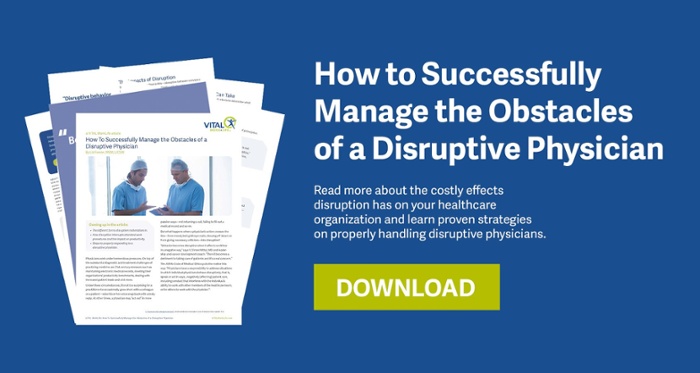When Physicians Lash Out
Medicine is a high-pressure environment. It’s also an ongoing-learning environment where more experienced physicians are expected to show younger colleagues best practices and share their expertise with colleagues in allied fields, like nursing. Sometimes the high-stakes, high-speed, life-or-death medical environment can stir emotions and emotional defenses—and a physician raises her voice too high, snaps at one of his colleagues in
a snarky manner, offers criticism in a belittling way, tells an off-color or ethnic joke or angrily refuses to perform
a task.
These events, understandable (if not always forgivable) at the everyday level, are risky in a medical setting, particularly when they become disruptive of the protocols and routines of good care and especially when the disruptions represent a pattern in the physician’s behavior.
Discerning the differences of disruption
Read about how to discern the difference between helpful criticism and outright abuse, the distinction between a physician having an occasional “bad day” and behavior that actually puts the patient at risk as well as passive forms of disruption that can create problems just as frustrating as those posed by the physician who “acts out.”
We discuss the “ripple effects” of bad behavior too: reduced willingness to collaborate with the disruptive doctor, reduced care team effectiveness, patient complaints and a real decline in the quality of care. And we offer lists of values and practices working to address the disruptive actions decisively while expressing respect for the physician as well as for the targets of her or his behavior.



